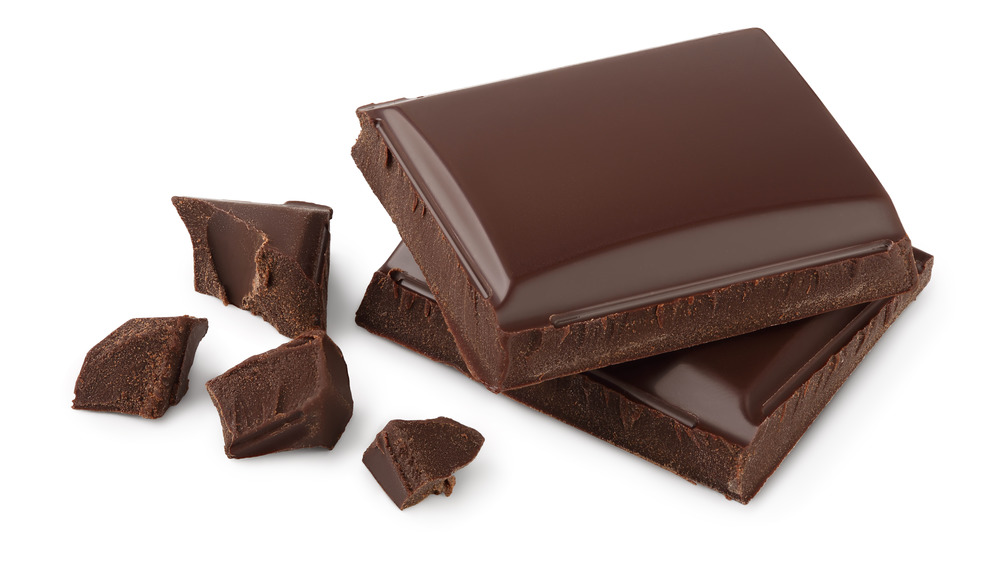Is Dark Chocolate Really As Healthy As You Think?
It's always a treat to discover that a food you enjoy is beneficial to your body. That's the case with dark chocolate, the tasty snack that's chock-full of healthy properties.
Made from cocoa beans, dark chocolate is made with anywhere from 50 to 90 percent cocoa solids, according to the Harvard T.H. Chan School of Public Health. By comparison, milk chocolate has 10 to 50 percent cocoa solids, along with milk. Both kinds of chocolate are made with cocoa butter and sugar.
Why is dark chocolate so much better for you than milk chocolate? That's because it has high levels of flavanols and polyphenols, which are antioxidants that fight free radicals, according to Medical News Today. Free radicals contribute to a condition known as oxidative stress, which is implicated in diseases like diabetes, Parkinson's, and cancers, as well as natural aging. Flavanols have also been shown to lower blood pressure by relaxing blood vessels. In doing so, they are thought to protect against heart disease.
How much dark chocolate can you enjoy?
On a different level, dark chocolate may help protect your skin against damage from the sun. One study, published in the Journal of Cosmetic Dermatology, showed that among people who ate dark chocolate over a 12-week period, the time it took for skin to turn red following sun exposure more than doubled. This only applied to people who consumed dark chocolate high in flavonoids, which are the options with higher cocoa content. For the study, participants ate dark chocolate that contained at least 70 percent cocoa solids. However, this doesn't mean you can eat dark chocolate and enjoy the sunshine without sunscreen, so do keep that in mind.
Dark chocolate that has higher levels of cocoa – between 70 and 85 percent – also holds dietary value. A 100-gram bar includes 11 grams of fiber, 98 percent of the daily recommended intake for manganese, 89 percent for copper, and 67 percent for iron, according to Healthline. However, that bar also contains about 600 calories, so it should obviously be consumed in moderation. The Chan School of Public Health notes that chocolate can increase a feeling of satiety, so opt for just one or two squares and you have a good snack.


